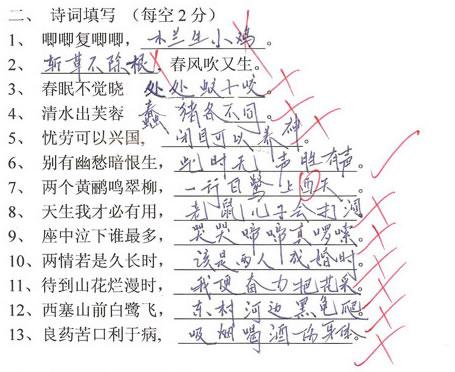时态专题总结 一般将来时
天津供暖时间-退税申请怎么写
英语时态总结:一般将来时
1.概念
一般将来时表示将来某一时刻的动作或
状态,或将来某一段时间内经常的动作或状态,常常
和表示将来的时间状语连用
2.句式
①肯定句:主语+ be going to do 主语+will+ 动词原形
He
will get married.
He is going to get married.
他就快结婚了。
②否定句:主语+ be not going to do 主语+
will not+ 动词原形
Oil and water will not mix.
Oil and water isn’t going to mix.
油水没法混在一起。
③疑问句:Be动词+主语+ going to do
Will+主语+ 动词原形
简略回答:(肯)Yes,主语shallwill
(否)
No,主语 shallwill not
Will you go to the cinema
tomorrow?
Are you going to go to the cinema
tomorrow?
你明天会去电影院么?
肯定回答:Yes, I will.
否定回答:No, I won’t.
④特殊疑问句:一般将来时的特殊疑问句是将疑问词放在句首,后接一般疑问句
Why
will you be here on Sunday?(周日你为什么将要在这儿?)
I
will have a meeting on Sunday(我将要在周日举行一个聚会)
Telephone me this evening. I‘ll be at
home. 今晚给我打电话,我会在家。
I'll(shallwill)do a better
job next time. 下次我要干得好
The car won‘t
start.车开不了啦。
【注:时间状语
tomorrow
the day after tomorrow
tomorrow
morningafternoon
eveningnext year
weekmonth
hourday
centuryin+一段时间
in the futurethis afternoon
Sundayevening
from now on
someday soon】
one
day
和shall的辨析
will和shall在句子中所表达的“
意志”是不同的,当句子主语是第一人称(I)的时候表示的
是主语 I 的自主“意志”
例:
I will get up earlytomorrow .我明天会早起。
分析:这个句子中用will时,主语 I(我)就带有强烈的意志,意思是我会早起,并且有我会为此付诸努力的意思。当第一人称,用shall的时候就是一个普通的句子,就没有主语的意
志。
I shall come back in ten minutes
.这句话就是单纯的说我会在10分钟后回来没有别的意思
I will come back in
ten minutes. 而这句话就有一种意境上的不同。我会在10分钟后回来,
其中的意思还有
,就算我有事耽搁了我也会想办法在10分钟后回来的意思
shall在第二、三人称时也和will
在第一人称一样。也只有在二三人称才带有意志,只不过
shall带有的是“说话者”的意志。而不是
主语的意志。
如:he shall be rewarded. 他会得到回报
分析这句
话更深度的意思,我说过在shall用在第二三人称时有强烈的“说话者”的意志。而
这句话的“说话
者”意志就是他会得到回报,就算他没有得到回报“说话者”也会想办法让“he”
得到回报。
4.结构
(1)常见结构
①will shall +
动词原形(否定句在willshall后加not)
这种方法一般单纯地表示将来某个时间将要发生的动作或存在的状态
I will
shall go to visit him next week. 下周我将去拜访他。
What time shall we go there tomorrow?
明天我们几点去那儿?
②be going to+动词原形
be going to 相
当于一个助动词(其中be有人称和数的变化),与它后面的动词原形一起构成
谓语。用来表示将要发生
的动作以及计划、安排和打算要做的事
There is going to be a
football match this afternoon.今天下午将有一场足球赛。
I‘m
going to go to the park. 我将要去公园。
③行进式动词
<1>概念
可用进行时态表示按计划即将发生的动作的动词
<2>动词
go,
come,start,move,sail,leave,arrive,stay,live,fly,等
例:I'm leaving for Beijing.
④“be
to+动词原形”表示按计划要发生的事或征求对方意见
例:
①Are we to go
on with this work?我们继续干吗?
②The boy is to go to
school tomorrow.这个男孩明天要去上学。
⑤“be about
to+动词原形”表示即将发生的动作,意为:立刻,马上。后面一般不跟时间状
语。
例:
We are about to leave.我们马上就走。
⑥某些词,如come, go, leave, arrive, start,
get, stay ,live,fly等的一般现在
时也可表示将来。
例:
The meeting starts at five o'clock.会议五点开始。
He gets off at the next stop.他下一站下车。
与be going
to 的区别
be going
to与will两者都可表示将要发生的事、将要去做某事,但它们有如下几点区别:
(1)be
going to 表示将要发生的事情,will 表示的时间则较远一些
例:
He
is going to write a letter tonight.
He will
write a book one day.
(2)be going to
表示根据主观判断将来肯定发生的事情,will表示客观上将来势必发生的事
情。
例:
He is seriously ill. He is going to die.
He will be twenty years old.
(3)be going
to 含有“计划,准备”的意思,而 will 则没有这个意思,例:
She is going
to lend us her book.
He will be here in half
an hour.
(4)在有条件从句的主句中,一般不用 be going to,
而多用will, 例:
If any beasts comes at you, I'll
stay with you and help you
【注意:be going
to和will在含义和用法上稍有不同。be going
to往往表示事先经过考虑
的打算;will多表示意愿,决心。两者有时不能互换。如:
She is studying hard and is going to try for
the exams.她正努力学习并尝试参加考试。(is
going
to不能用will替换)】
6.主将从现
(1)概念
主将从现是指在时间状语从句和条件状语
从句和让步状语从句中,如果主句是一般将来时,
从句用一般现在时替代一般将来时
(2)常用结构
①时间状语从句的主句是一般将来时,那么从句常常用一般现在时。
如: When I grow up, I’ll be a nurse and look
after patients.
我长大后要当一名护士,照顾病人。
②如果主句是祈使句,那么从句通常要用一般现在时
例:Don’t laugh at
me when I make a mistake.
我犯错误的时候不要笑话我。
③如果主句是含有情态动词的一般现在时,根据需要从句多用一般现在时
例:You
should be quiet when you are in the reading room
在阅览室时应保持安静。
④如果if的条件状语从句遇到变换间接和直接时 ,
祈使句应用notto....
例:She said not to close the
window
⑤常见的时间状语从句的连词有:as soon as,when,while
,as,until等
⑥主要标志有:if, unless, until, when, as
soon as
7.练习
(1) —I don’t know if Mr. Li
____ to the party this evening.
—I think he
will come if he ____ free.
A.
will come; is B. will come; will be
C. comes; is D. comes; will
be
(2) Now my father ____ his bike to work
every day instead of driving.
A.
ride B. rode
C.
rides D. will ride
(3)If there is
any change to the plan, I ____ you as soon as
possible.
A. told B. have
told
C. tell D. will
tell
(4)He says he ____ all his money to
charities when he dies.
A. donate
B. can donated
C. will donate ng



